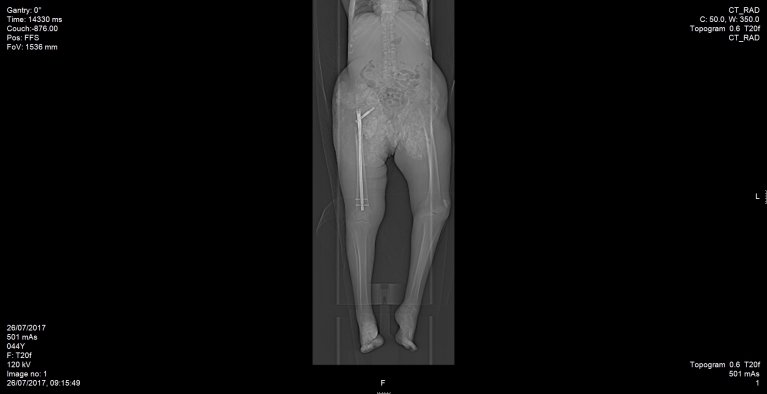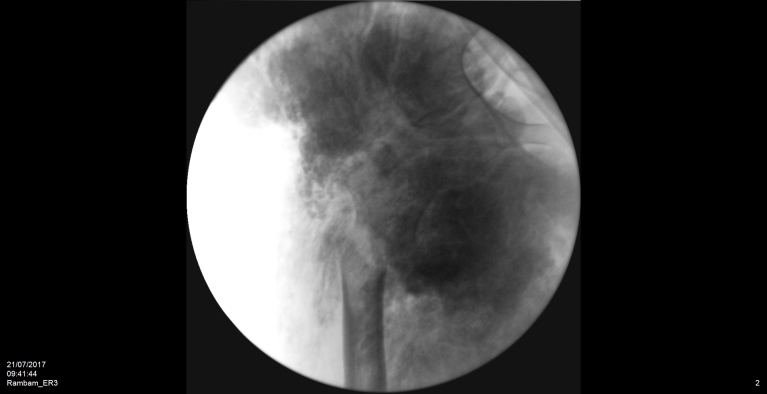Bone Involvement in Hyperphosphatemic Familial Tumoral Calcinosis: A New Phenotypic Presentation.
IF 1.4
Q2 MEDICINE, GENERAL & INTERNAL
引用次数: 1
Abstract
Mutations in FGF23, KL, and GALNT3 have been identified as the cause for the development of hyperphosphatemic familial tumoral calcinosis (HFTC). Patients with HFTC typically present in childhood or adolescence with periarticular soft tissue deposits that eventually progress to disrupt normal joint articulation. Mutations in the GALNT3 gene were shown to account for the hyperphosphatemic state in both HFTC and hyperostosis-hyperphosphatemia syndrome (HHS), the latter characterized by bone involvement. We present the case of a patient of a Druze ethnic origin with known HFTC that presented to our department with the first documented case of pathologic fracture occurring secondary to the disease. Our report introduces this new phenotypic presentation, suggests a potential role for prophylactic bone screening, and highlights the need for preconception genetic screening in selected populations.


高磷血症家族性肿瘤钙质沉着病的骨受累:一种新的表型表现。
FGF23、KL和GALNT3的突变已被确定为高磷血症家族性肿瘤钙沉着症(HFTC)发生的原因。HFTC患者通常出现在儿童或青少年时期,伴有关节周围软组织沉积,最终进展到破坏正常的关节。GALNT3基因的突变被证明可以解释HFTC和高骨质增生-高磷血症综合征(HHS)的高磷血症状态,后者的特征是骨骼受累。我们提出的病例德鲁兹族血统的患者已知HFTC,提出了第一个记录的病例病理性骨折继发于该疾病。我们的报告介绍了这种新的表型表现,提出了预防性骨筛查的潜在作用,并强调了在选定人群中进行孕前遗传筛查的必要性。
本文章由计算机程序翻译,如有差异,请以英文原文为准。
求助全文
约1分钟内获得全文
求助全文
来源期刊

Rambam Maimonides Medical Journal
MEDICINE, GENERAL & INTERNAL-
CiteScore
3.20
自引率
6.70%
发文量
55
审稿时长
8 weeks
 求助内容:
求助内容: 应助结果提醒方式:
应助结果提醒方式:


